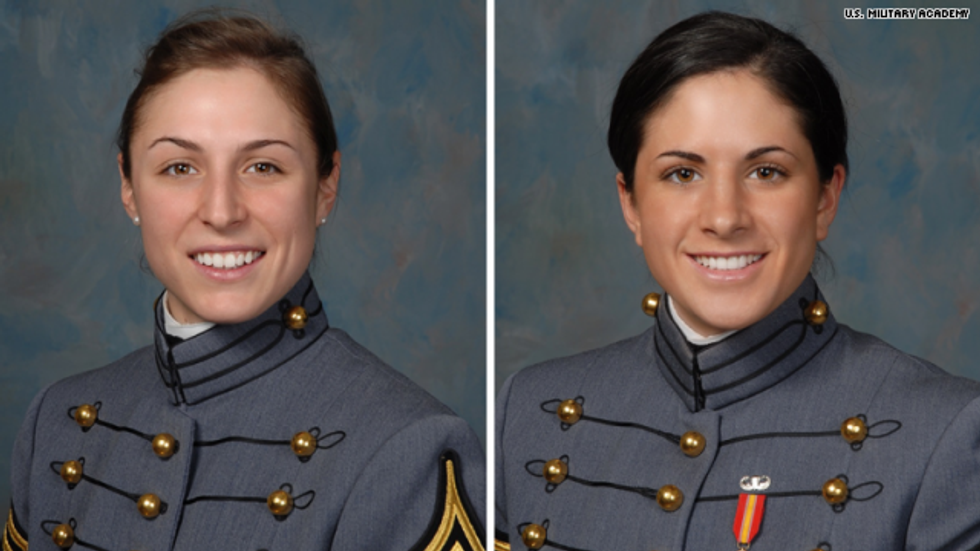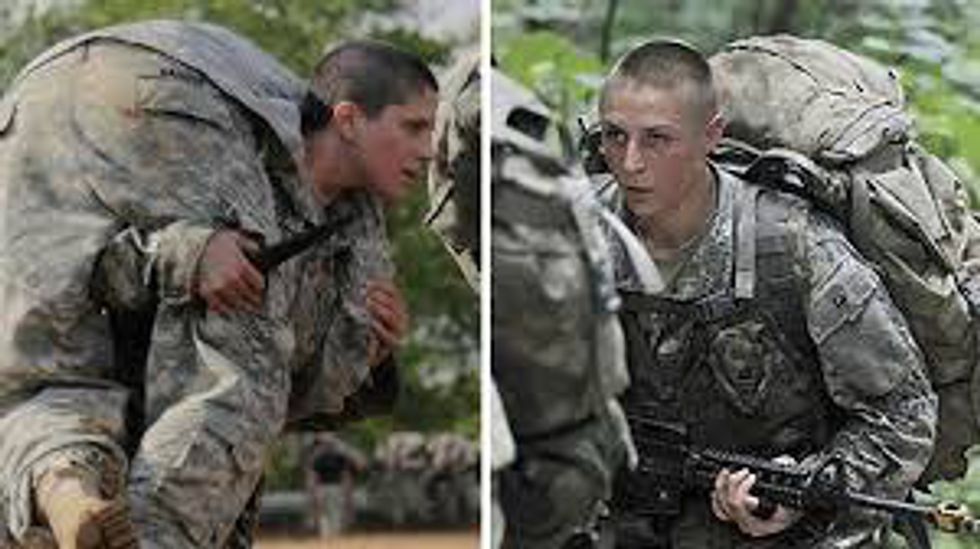There is no doubt that when first Lt. Shaye Haver and Capt. Kristen Griest became the first female Army Rangers, it was a huge triumph for women. Women soldiers, who were not formally a part of the military until mid-20th century, have been traditionally turned away from the Ranger School because it severely tests soldiers, physically and mentally. Until 2015, Ranger Graduates were all men, insinuating that the tests were simply too difficult for women to pass.
Thankfully, Haver and Griest thumbed their nose at that claim.
Side-note, for all my misogynistic fans out there: these women did not experience a different course than their male counterparts. Maj. Gen. Scott Miller, one of the speakers at the Ranger graduation ceremony, addressed this claim, saying, "Ladies and gentlemen...standards are still the same...a five-mile run is still a five-mile run. Standards do not change. A 12-mile march is still a 12-mile march." (According to NPR's, "First Female Soldiers Graduate from Army Ranger School".) So if I hear any snide comments about their ability to complete the course, their looks, or anything that undermines this incredible accomplishment, there will be hell to pay.
As a young woman, the example that Lt. Haver and Capt. Griest have set for me is great. I know that personally I cannot do all the things that these women accomplished in the Ranger course, but now I have models to look up to if I choose to try these things. I have real, tangible examples of physically strong women. I mean, I know several emotionally strong and commanding women in my life (my grandmothers, my mom, aunts, teachers, local leaders, etc.), but a physically strong woman who runs and climbs and fights without weakness or hesitation is something that I do not really have in my life. So, yes, this was a huge accomplishment for Lt. Haver and Capt. Griest, but it was also a great example for young women in general.
Much more importantly than the general community of young women is the young women who specifically inspire to be military representatives and maybe future Army Rangers. I interviewed an ROTC woman at Loyola University Maryland about her reaction to the new female Army Rangers. "I was honestly really proud. Women have broken so many social boundaries and to finally have the ability to be given a chance to go to Ranger School, it was definitely a groundbreaking moment."
I asked about her experiences in the ROTC program at Loyola, which she recounted were "a little tough in the beginning but I had to learn to 'roll with the punches.' It didn't take that long for me to catch up."
As it turns out, about a third of the ROTC program at Loyola is women. To me, that is surprising, because I did not expect that many women to be involved with ROTC, especially because for me, it was never a second thought to join. At the same time, I think it's awesome, because that means we are getting closer to evening the ratios between men and women in the service. Frankly, I hope to see a greater percentage of women joining ROTC programs in this and in the upcoming years. And if we do, I truly believe that it will be at least partially because Lt. Haver and Capt. Griest proved, that women can pass the Army Ranger test, can be great soldiers, and can really be just as incredible as we have always said women are.
























 sunrise
StableDiffusion
sunrise
StableDiffusion
 bonfire friends
StableDiffusion
bonfire friends
StableDiffusion
 sadness
StableDiffusion
sadness
StableDiffusion

 purple skies
StableDiffusion
purple skies
StableDiffusion









